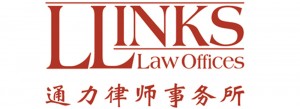On 20 February 2014, the Shanghai head office of the People’s Bank of China (PBOC) issued the Notice on Supporting Expansion of Cross-Border Use of the Renminbi in the China (Shanghai) Pilot Free Trade Zone. Item 4 of the notice sets out detailed rules for the offshore borrowing of renminbi by financial institutions and enterprises in the China (Shanghai) Pilot Free Trade Zone. This provision permits enterprises in the zone to borrow and use, under certain conditions, offshore renminbi borrowings, signifying that the cross-border use of renminbi by enterprises in the zone has taken another step forward. It is also being deemed a new measure of China’s acceptance of the cross-border inflow of renminbi.

David Yu
通力律师事务所
合伙人
Partner
Llinks Law Offices
Existing policies
Before the issuance of the notice, China’s existing policies on the cross-border inflow of renminbi mainly included:
- the Notice on Matters Relevant to the Pilot Project for the Use by Offshore Renminbi Settlement Banks and Two Other Types of Institutions of Renminbi to Invest on the Interbank Bond Market (2010), published by the PBOC on 16 August 2010;
- the Administrative Measures for Direct Investment by Foreign Investors in Renminbi Settlement Business (2011), published by the PBOC on 13 October 2011;
- the Measures for the Pilot Project for Domestic Securities Investment by Fund Management Company and Securities Company Renminbi Qualified Foreign Institutional Investors, order No. 76 of the China Securities Regulatory Commission (CSRC), PBOC and State Administration of Foreign Exchange (SAFE), jointly issued by the CSRC, the PBOC and SAFE on 16 December 2011;
- the Provisional Administrative Measures for Cross-Border Renminbi Loans in Qianhai (2012), approved and published by the PBOC on 27 December 2012.
The main provisions of the notice concerning the renminbi cross-border borrowing policy for the zone are as below:
Borrowing entity. A bank, non-bank financial institution or enterprise registered in the zone.
Loan size. The upper limit on renminbi funds borrowed from abroad by an enterprise in the zone, calculated based on the balance, should not exceed paid-in capital × 1 × macro prudential policy parameter.
The upper limit on renminbi funds borrowed from abroad by a non-bank financial institution in the zone, calculated based on the balance, should not exceed paid-in capital × 1.5 × macro prudential policy parameter.
The above-mentioned macro prudential policy parameter will be set by the Shanghai head office of the PBOC and flexibly revised, based on the needs of credit control nationwide.
Loan term. The term of an offshore renminbi loan taken out by an enterprise or non-bank financial institution in the zone must be more than one year.
Purpose of the loan. The loan must be used in a sector compatible with the state’s macro control direction, and may not be used for investments in negotiable securities (including wealth management and other such asset management type products) or derivatives for the time being, or used for entrusted loans.
Loans taken out by enterprises and non-bank financial institutions in the zone may only be used in the zone or abroad, including operations in the zone, project construction in the zone, project construction abroad, etc. Loans taken out by banks in the zone must be used in the zone and serve development of the real economy.
Deposit of the loan. A loan taken out by an enterprise or non-bank financial institution in the zone may be deposited in a dedicated deposit account opened with a bank in the Shanghai region. Interest must accrue on such an account at the rate for demand deposits.
Analysis of the new policy
A single liberalising move with multiple benefits. In the process of internationalising the renminbi, investment channels for offshore renminbi have consistently been an issue awaiting resolution. Offshore renminbi flowing back into China in the form of commercial loans increases the investment channels for offshore renminbi and is conducive to strengthening foreign business operators’ willingness to hold and use renminbi. The establishment of the zone requires a large quantity of funds and currently the financing costs of domestic enterprises are higher in China than in foreign markets. Liberalisation of the offshore borrowing of renminbi can expand the financing channels available to domestic enterprises and enable them to secure renminbi funds at a lower cost.

Kevin Huang
通力律师事务所
律师
Associate
Llinks Law Offices
Stringent control of arbitrage. The offshore renminbi borrowing liberalised by the notice is an extension of the PBOC’s prudent and gradual style of liberalising capital markets. With respect to funds that enter the zone through offshore renminbi borrowing, the notice adopts several methods to restrict the space for arbitrage. One such method requires use of dedicated accounts for controlling funds, prohibiting their investment in negotiable securities and derivatives and the subsequent extension of loans, prohibiting loan terms of less than one year, requiring interest to accrue on the funds in the accounts at the rate for demand deposits, etc. These stringent measures will help limit the potential for offshore funds entering the zone to be used in arbitrage activities.
Clear restrictions on the scope of use. The notice specifies that the scope of use for renminbi loans in the zone is strictly limited. They can only be used in the zone or abroad, including operations in the zone, project construction in the zone and project construction abroad. Accordingly, it will be impossible to use the proceeds from renminbi loans for business activities outside the zone, or for investment in enterprises outside the zone.
The policy promulgated by the notice for offshore renminbi borrowing by enterprises in the zone is a new measure in the acceptance by China of the cross-border return flow of offshore renminbi, and notwithstanding the stringent restrictions it imposes on the use of the funds, it is an important step in the process of establishing the zone.
Of even greater significance is the provision in article 1 of the notice reading, “all policies and measures issued by the state to encourage and support expansion of cross-border use of the renminbi shall apply to the zone”. This signifies that new policies on the offshore borrowing of renminbi, promulgated in future by the state in any region or at any level, will automatically apply to the zone. Accordingly, future policies remain worth waiting for.
David Yu is a partner and Kevin Huang is an associate at Llinks Law Offices
上海市银城中路68号时代金融中心19楼
邮编: 200120
19/F, ONE LUJIAZUI, 68 Yin Cheng Road Middle
Shanghai 200120, China
电话 Tel: +86 21 3135 8666
传真 Fax: +86 21 3135 8600
电子信箱 E-mail:
david.yu@llinkslaw.com
kevin.huang@llinkslaw.com
www.llinkslaw.com






















